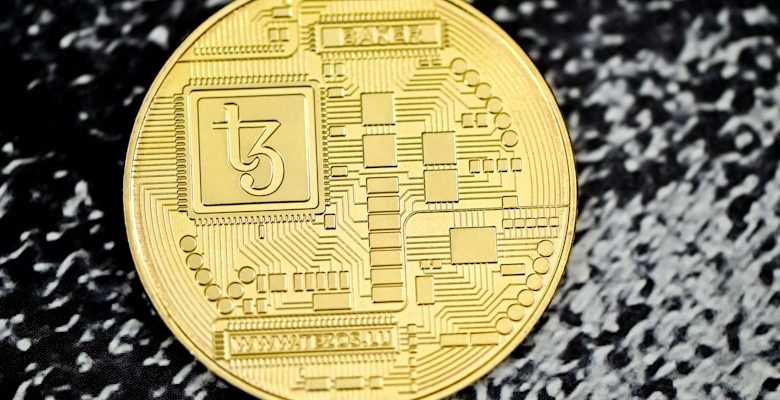What is DeFi? A Beginner’s Guide to Decentralized Finance

- Understanding the Basics of DeFi
- Exploring the World of Decentralized Finance
- The Rise of DeFi: Revolutionizing the Financial Industry
- Key Concepts of Decentralized Finance
- Getting Started with DeFi: A Beginner’s Guide
- The Future of Finance: How DeFi is Changing the Game
Understanding the Basics of DeFi
DeFi, short for Decentralized Finance, is a new and innovative way of conducting financial transactions without the need for traditional intermediaries like banks or financial institutions. In DeFi, individuals can access a wide range of financial services such as lending, borrowing, trading, and investing using blockchain technology and smart contracts.
One of the key principles of DeFi is decentralization, which means that these financial services operate on a decentralized network of computers rather than a central authority. This allows for greater transparency, security, and accessibility for users around the world.
To participate in DeFi, users typically need to connect their digital wallets to decentralized applications (dApps) that run on blockchain networks like Ethereum. These dApps enable users to interact with smart contracts that automatically execute transactions based on predefined conditions, without the need for intermediaries.
DeFi has gained significant traction in recent years due to its potential to democratize finance and provide financial services to underserved populations. However, it is important for users to understand the risks associated with DeFi, such as smart contract bugs, security vulnerabilities, and market volatility.
Overall, understanding the basics of DeFi is crucial for anyone looking to explore this exciting and rapidly evolving space. By familiarizing yourself with the key concepts and principles of DeFi, you can make informed decisions and navigate the decentralized financial landscape with confidence.
Exploring the World of Decentralized Finance
Decentralized finance, also known as DeFi, is an innovative approach to traditional financial systems that aims to eliminate the need for intermediaries like banks. Instead, DeFi relies on blockchain technology to create a peer-to-peer network where users can interact directly with one another.
One of the key benefits of DeFi is its potential to provide greater financial inclusion by giving individuals around the world access to financial services without the need for a traditional bank account. This can be especially important in regions where access to banking services is limited.
Another advantage of DeFi is its transparency and security. Because transactions are recorded on a public blockchain, they are easily verifiable and cannot be altered. This can help reduce the risk of fraud and provide users with greater peace of mind when conducting financial transactions online.
In addition to these benefits, DeFi also offers a wide range of financial products and services, including lending, borrowing, trading, and more. Users can take advantage of these services to earn interest on their assets, access liquidity, or hedge against market risks.
Overall, exploring the world of decentralized finance can open up a new realm of possibilities for individuals looking to take control of their finances and participate in a more open and accessible financial system. Whether you’re a seasoned investor or new to the world of finance, DeFi has something to offer for everyone.
The Rise of DeFi: Revolutionizing the Financial Industry
DeFi, short for Decentralized Finance, is a rapidly growing sector within the cryptocurrency industry that is revolutionizing the way traditional financial services are conducted. DeFi platforms aim to eliminate the need for intermediaries such as banks and financial institutions, allowing users to access financial services directly from their digital wallets.
One of the key features of DeFi is its focus on decentralization, which means that these platforms operate on blockchain technology without the need for a central authority. This not only increases transparency and security but also reduces the fees associated with traditional financial services.
The rise of DeFi has sparked a wave of innovation in the financial industry, with new projects and protocols being developed to offer a wide range of services such as lending, borrowing, trading, and more. These platforms are built on smart contracts, which are self-executing contracts with the terms of the agreement directly written into code.
DeFi has gained significant traction in recent years, with billions of dollars locked in various DeFi protocols. This growth is driven by the desire for financial inclusivity, global access to financial services, and the potential for high returns on investments. As DeFi continues to evolve and mature, it holds the promise of reshaping the financial landscape as we know it.
Key Concepts of Decentralized Finance
Decentralized finance, also known as DeFi, is a revolutionary concept that aims to transform traditional financial systems by leveraging blockchain technology. The key concepts of DeFi revolve around decentralization, transparency, and accessibility.
One of the main principles of DeFi is the removal of intermediaries such as banks or financial institutions. Instead, transactions are conducted directly between users on a peer-to-peer basis, eliminating the need for third parties and reducing costs.
Another important concept in DeFi is transparency. All transactions and data on the blockchain are publicly accessible and verifiable, allowing for greater trust and accountability within the ecosystem.
Accessibility is also a fundamental aspect of DeFi. Anyone with an internet connection can participate in DeFi protocols and access financial services without the need for a traditional bank account or credit history.
Overall, the key concepts of DeFi – decentralization, transparency, and accessibility – are reshaping the financial landscape and empowering individuals to take control of their finances in a secure and efficient manner.
Getting Started with DeFi: A Beginner’s Guide
So you’ve heard about DeFi and you’re interested in learning more about decentralized finance. If you’re new to this concept, don’t worry – we’ve got you covered with this beginner’s guide to getting started with DeFi.
DeFi, short for decentralized finance, is a rapidly growing sector in the cryptocurrency space that aims to revolutionize traditional financial systems by utilizing blockchain technology. Unlike traditional finance, DeFi operates without intermediaries such as banks or financial institutions. Instead, transactions are peer-to-peer, transparent, and secure.
To get started with DeFi, you’ll need a few essentials. Firstly, you’ll need a digital wallet to store your cryptocurrencies securely. There are various options available, including hardware wallets, software wallets, and mobile wallets. Next, you’ll need to choose a decentralized exchange (DEX) to trade your cryptocurrencies. DEXs allow you to swap tokens directly with other users without the need for a central authority.
Once you have your wallet and chosen your DEX, you can start exploring the world of DeFi. You can participate in lending and borrowing platforms, yield farming, liquidity mining, and more. Just remember to do your research and understand the risks involved before diving in.
Overall, DeFi offers a new way to interact with financial services in a decentralized and transparent manner. By understanding the basics and taking the time to learn about different DeFi protocols, you can start to take advantage of this innovative technology and potentially earn rewards along the way.
The Future of Finance: How DeFi is Changing the Game
Decentralized Finance (DeFi) is at the forefront of revolutionizing the financial industry. By leveraging blockchain technology, DeFi platforms offer a wide range of financial services without the need for traditional intermediaries like banks. This shift towards decentralization has the potential to democratize finance and make it more accessible to a global audience.
One of the key advantages of DeFi is its ability to provide greater financial inclusion. With traditional banking systems, many individuals are excluded from accessing basic financial services due to various reasons such as high fees, lack of documentation, or geographical limitations. DeFi eliminates these barriers by allowing anyone with an internet connection to participate in the financial ecosystem.
Furthermore, DeFi enables users to have more control over their assets. Through smart contracts, users can securely manage their funds without relying on a third party. This reduces the risk of fraud or censorship, providing a greater sense of security and autonomy. Additionally, DeFi applications are open-source, allowing for greater transparency and auditability.



